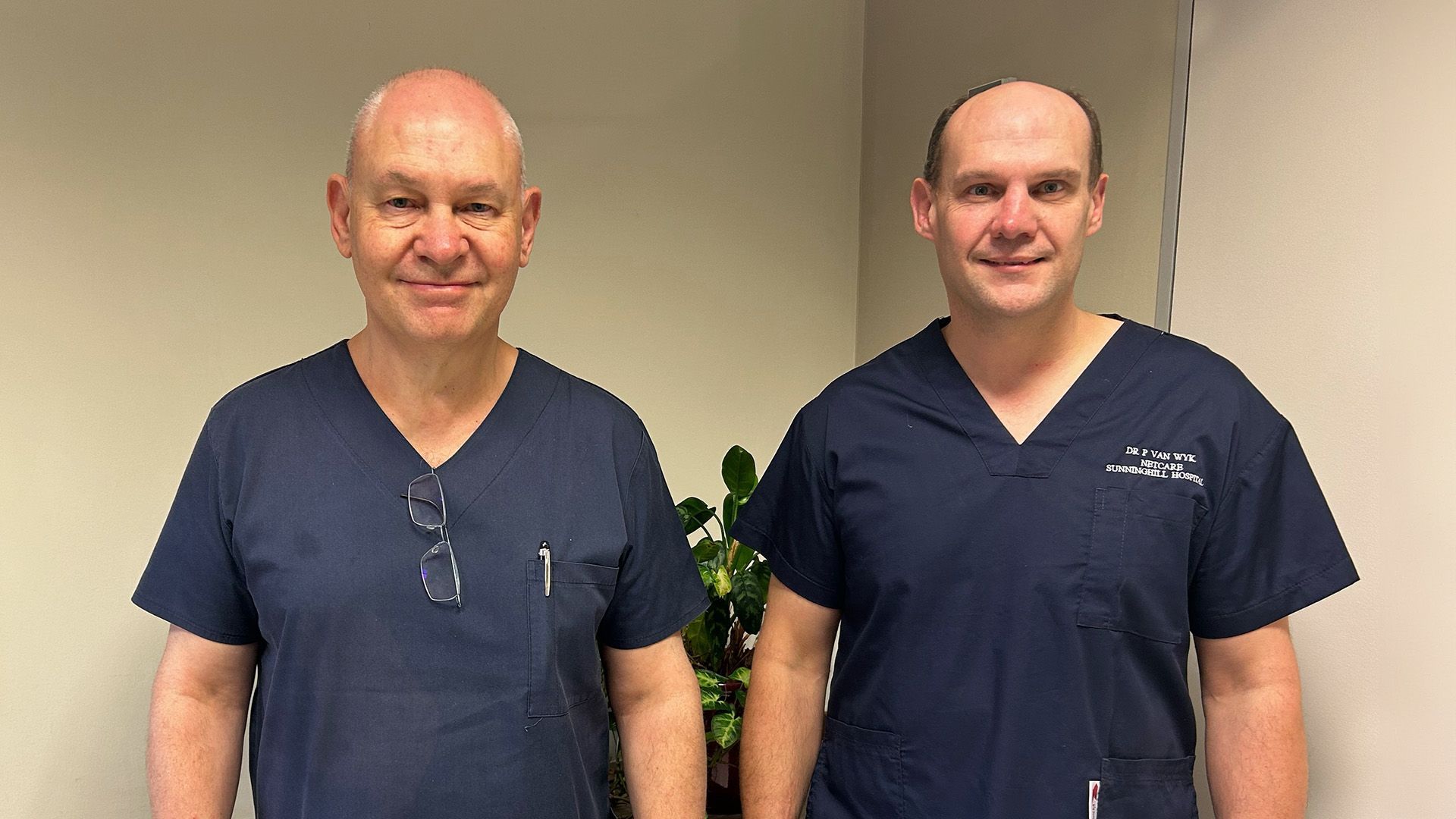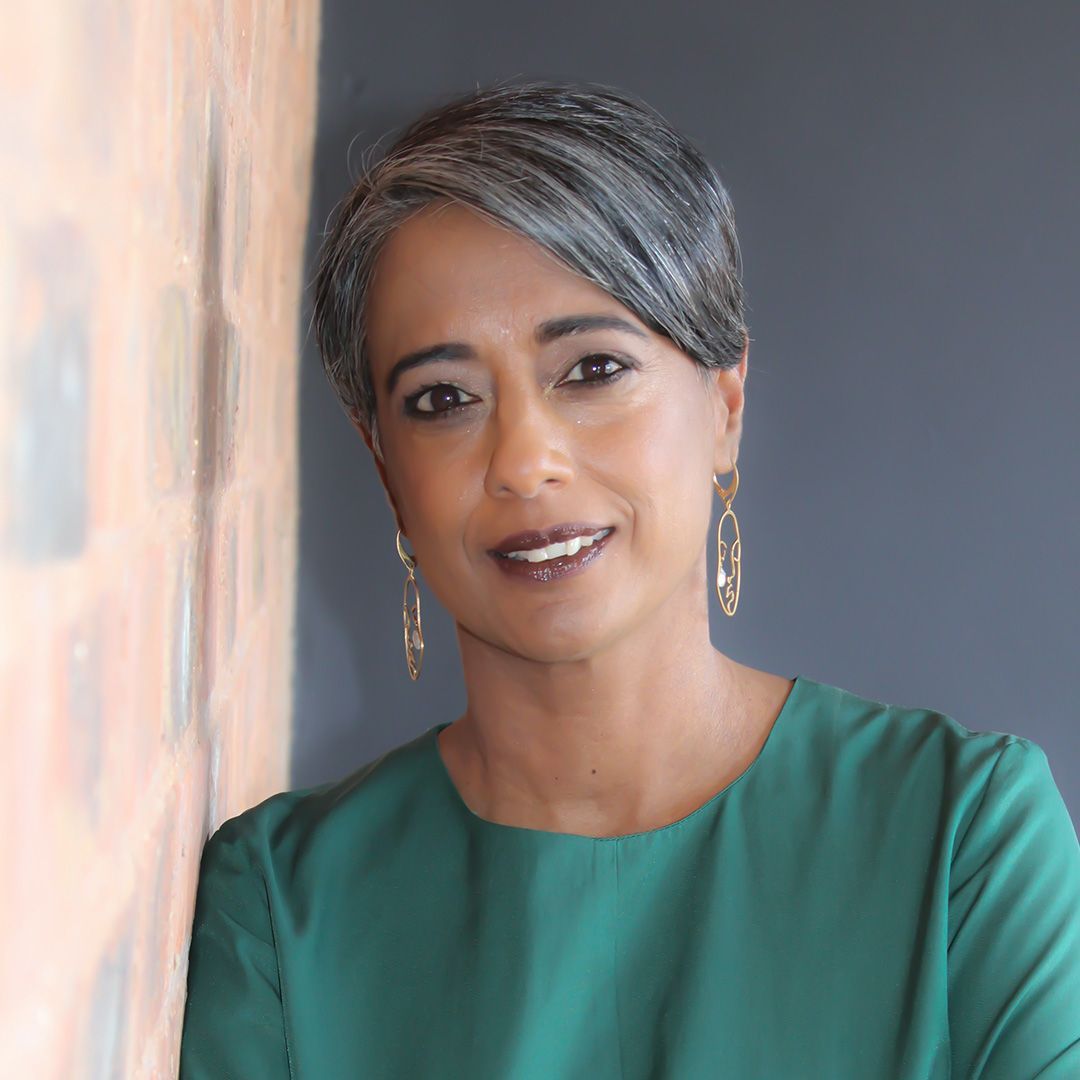Spotlight on SA expertise at largest interventional cardiology conference
Interventional cardiologist and associate professor at the University of Cape Town’s Medical School Professor Farrel Hellig and cardiologist Dr Pieter van Wyk
Live educational procedures broadcast to EUROPCR 2024
In the main arena of EuroPCR 2024, the world’s foremost interventional cardiovascular conference in the French capital, Paris, all eyes were on two South African cardiac specialists nearly 9 000km away performing minimally invasive heart procedures from the state-of-the-art catheterisation laboratory (cath lab) at Netcare Sunninghill Hospital in Johannesburg.
Selected as the only site outside of Europe to be featured in this international conference, video footage was streamed live to delegates as renowned interventional cardiologist and associate professor at the University of Cape Town’s Medical School Professor Farrel Hellig and cardiologist Dr Pieter van Wyk performed two live procedures.
“The objective of the annual EuroPCR conference is to provide a practical course designed to educate interventional cardiologists from all over the world on procedural techniques,” says Prof Hellig, who is well known for sharing his knowledge generously with colleagues in South Africa and internationally.
The cath lab at Netcare Sunninghill Hospital includes a permanent installation of cameras and software allowing us to transmit live cases anywhere in the world, or to record procedures to show later for teaching purposes, and is the only such installation in Africa.
This year was the fourth time Prof Hellig and the Netcare Sunninghill Hospital cath lab team have been invited to share live transmissions to the EuroPCR annual conference, which was held this year from 14 to 17 May.
In the first of the live educational cases that Prof Hellig and Dr Van Wyk performed transmitted live to the conference in Paris was a left atrial appendage (LAA) closure.
“An LAA is a pocket originating from the left atrial chamber of the heart where, under certain conditions, blood clots can form and can lead to a stroke,” explains Dr Van Wyk.
“Normally, this condition can be treated with blood thinning medication, but in patients who cannot tolerate anticoagulants, minimally invasive closure of the LAA provides a viable alternative to blood thinners in appropriate cases. It is therefore crucial to build international skill in this technique to reach more patients requiring this minimally invasive option worldwide,” he says.
For the LAA closure technique to be demonstrated at EuroPCR 2024, the catheter wires are inserted via the femoral vein in the patient’s thigh and guided to the heart, puncturing through the muscular wall of the heart from the right atrium to the left to gain access for placing a plug to seal off the LAA pocket, thereby containing the stroke risk it presents.
In the second live educational case, Prof Hellig and Dr Van Wyk performed a highly specialised anterograde chronic total occlusion to clear a completely blocked coronary artery.
“All this is done through the radial artery with the image of the catheter wires guided from the patient’s arm to the heart. The audience at the EuroPCR conference were able to see the angiogram and the same screens we were looking at, as well as our hands and the equipment,” Prof Hellig says.
In addition to the delegates attending the EuroPCR conference in person at the Palais des Congrès in Paris, the 12 live transmissions from the eight selected cath labs extend the educational reach of the procedures to many more international cardiology delegates online via EuroPCR 2024’s e-learning platform.
“Professor Hellig, Dr Van Wyk, and the exceptional cath lab team at Netcare Sunninghill Hospital, your recognition at this global conference is a true honour,” says Dr Erich Bock, acting managing director of Netcare’s hospital division.
“This accomplishment is a testament to the innovative and compassionate care you provide every day, which will enrich other specialists with the skills to treat these life-threatening heart conditions elsewhere in the world.
“We are grateful to these highly respected specialists for making these world-class techniques available in South Africa, and for the advanced cath lab technology that makes these lifesaving interventions possible. Through your dedication, you not only enhance the lives of countless patients but also inspire a new generation of cardiologists in Africa,” Dr Bock concludes.
For more information on EuroPCR 2024, please visit https://www.pcronline.com/Courses/EuroPCR













